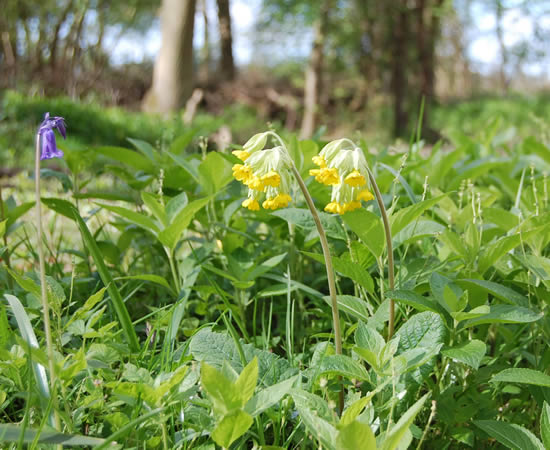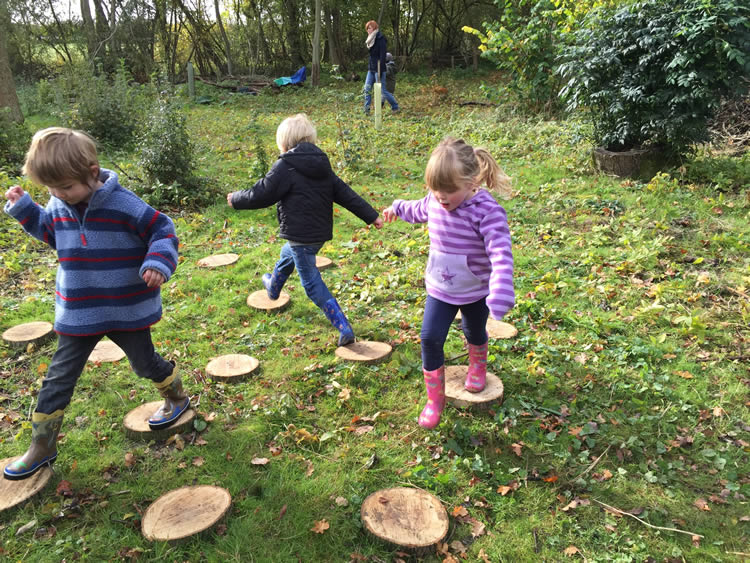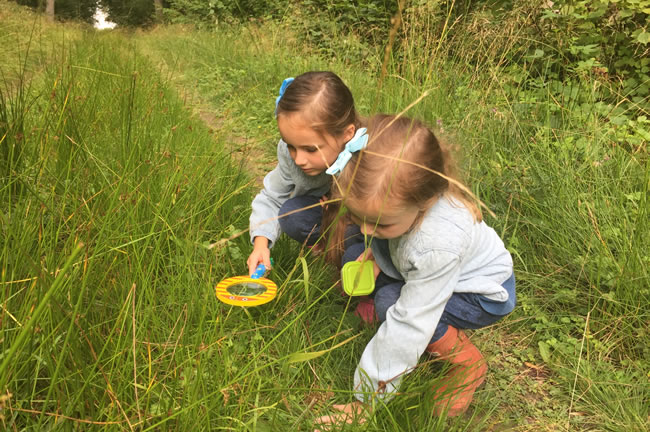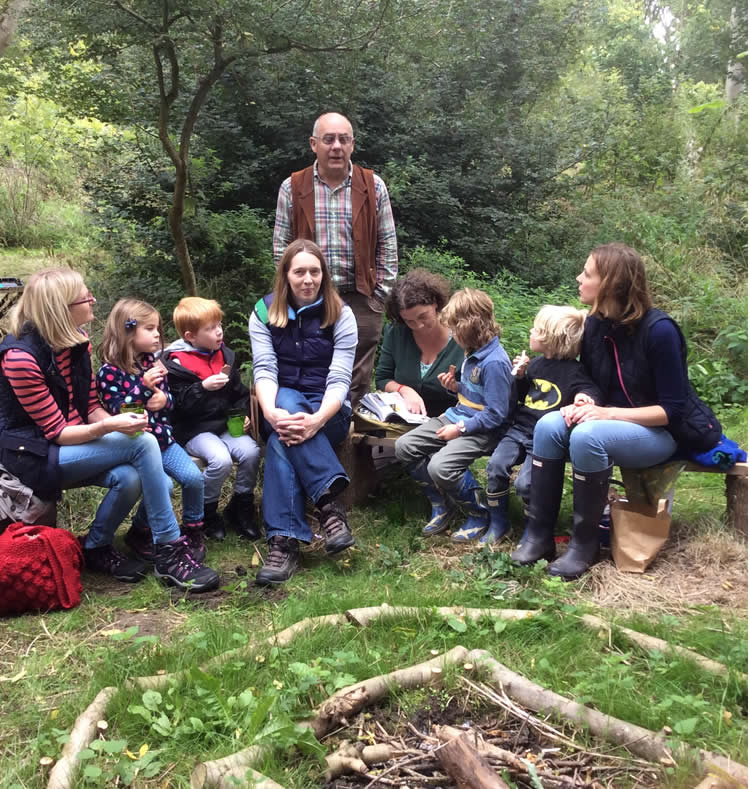Children need to run free
We live in an era where children lack frequent and unfettered exposure to wild places where they can play freely without an adult at their elbow.
Of course, times have changed along with pressures and expectations on parents to keep their children safe. However, unfortunately this lack of exposure to risk can be detrimental to a child’s development as they come to rely on their parent looking out for them, rather than learning to assess and interact with risky situations by themselves.

Outdoor play encourages imagination
When children play outdoors they develop intelligence all by themselves, responding to the challenges they encounter in ways that just don’t happen when they play indoors. The outdoors provides simple but effective lessons in risk assessment and management. Playing in a wild woodland requires development of greater awareness of how to negotiate the environment; for example, running through the woodland, head up and looking forwards generally results in a fall and a lesson quickly learned.


Playing outdoors is liberating
When playing outdoors the physical play area isn’t confined by walls and a ceiling, in itself providing a liberating and inspirational environment that inspires the imagination through engaging the senses of sight, sounds, smell and touch in ways that are just not available indoors.
When interacting with others, in an outdoor environment, children have the physical space to be able to advance and withdraw from encounters with others at their own pace, reducing potential conflicts. Through allowing children to ‘work things out’, we are helping them develop emotional intelligence, communication skills, assertiveness and co-operation; all skills that are important to acquire for adult life. In my experience, playing outdoors generally brings out the best in children, when it comes to them developing ’emotional intelligence’ relating to the needs of others.

Nature deficit disorder
The importance of children taking risks through playing outdoors is now widely advocated.
The term nature deficit disorder was coined by Richard Louv who extols the value of children playing outdoors, to combat attention difficulties, obesity, higher rates of physical and emotional illness and diminishing of use of the senses. Put in those terms, the case for getting the kids outdoors is more should be more than just considered a subject of discussion, but one of of necessity.
Getting away from computers
Free play outdoors has no script and promotes use of imagination. If there is no computer game nearby children will generally fairly quickly find something else to engage with, if given a few prompts and a few props to start them off. In my experience children are essentially creative beings who will, with a little prompting, become as engaged in a game outdoors as they ever are indoors in front of a screen.
Outdoor play builds self confidence and self esteem
Playing outdoors, whether children or adults, helps with holistic development through reducing stress levels, enhancing mental relaxation, and improving physical fitness. Being able to engage in free play outdoors can also help children develop their self confidence and self-esteem through having opportunity to choose and ‘do it myself’.Free play outdoors is about learning by doing, getting it wrong and trying again.
The lack of goals or expectations of success when playing outdoors can be really help build the confidence and self-esteem of children, providing them with space to think, to imagine and just experience the simple pleasures of play, delivering joy. The sensations of the wind in their hair, the rain on their faces and the sensory experiences of playing in nature does more than stimulate the brain, it feeds the soul.




Recent Comments